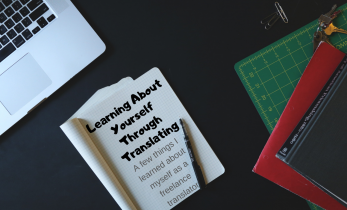Greater than 2 minutes
Interpreting in Court Thoughts of a defense lawyer
Many times I have personally had clients with relatively good ability to understand Swedish, but they have insisted on having an interpreter in court. The fact is that they do not need an interpreter to understand the spoken wordd. The truth is that they with the assistance of a translator will have twice as much time to consider the answer.
Once in Stockholm district court , I remember that we had an interpreter in the English language. His abilities to interpret was so weak that the judge after about fifteen minutes after the beginning of the session called out and said: “This is impossible, you are not capable of translating more than a Good morning. You can go”. The court took about fifteen minutes recess, and a clerk from the court came, was sworn in and started to interpret. It is not easy for an interpreter to do his or her work in court if the source language is English. Almost everyone in Sweden speaks English and can follow what is said between the interpreter and the person who is the target for this service. Something like this had never happened before or after happened to me.
As I was assistant judge in Haparanda in the northern of Sweden, I got numerous occasions to interpret in court. I translated from English, German and Finnish to Swedish. I remember one time, as I had to interpret for a German sailor. I do not remember why he was in court, but suddenly he said something quite amusing and I could not help myself smiling a little. The sailor stared at me, furious and shouted quite loud: “SIE HABEN GUT LACHEN, SIE”. Roughly translated, “It is easy for you to laugh”. He was right, it is not for me to smile i a situation like that.
There are many different kinds of interpreters in the court. Some are very efficient, capable of interpreting simultaneously; others are useless, asking over and over again about the words to translate. Of course, there are many outstanding interpreters between these two categories also.
I have had many cases in court, where the native language of the defendant has been Finnish. As I speak Finnish myself, the interpreters always trusted me to object if they should say anything wrong or leave something out. As a translator once told me: “I feel so confident when you are in court, because I know that you would react if I tell lies.
All of you should understand that the interpreters do a fabulous job, sitting in court all day and when they come home in the evening, their mind is empty.
It is work, where you have to be enormously concentrated and not for a minute let your thoughts wander elsewhere.
We must keep in mind that the interpreters have an enormous power, because the are the only persons, to know about the translation on both sides of the barriers in the court.




